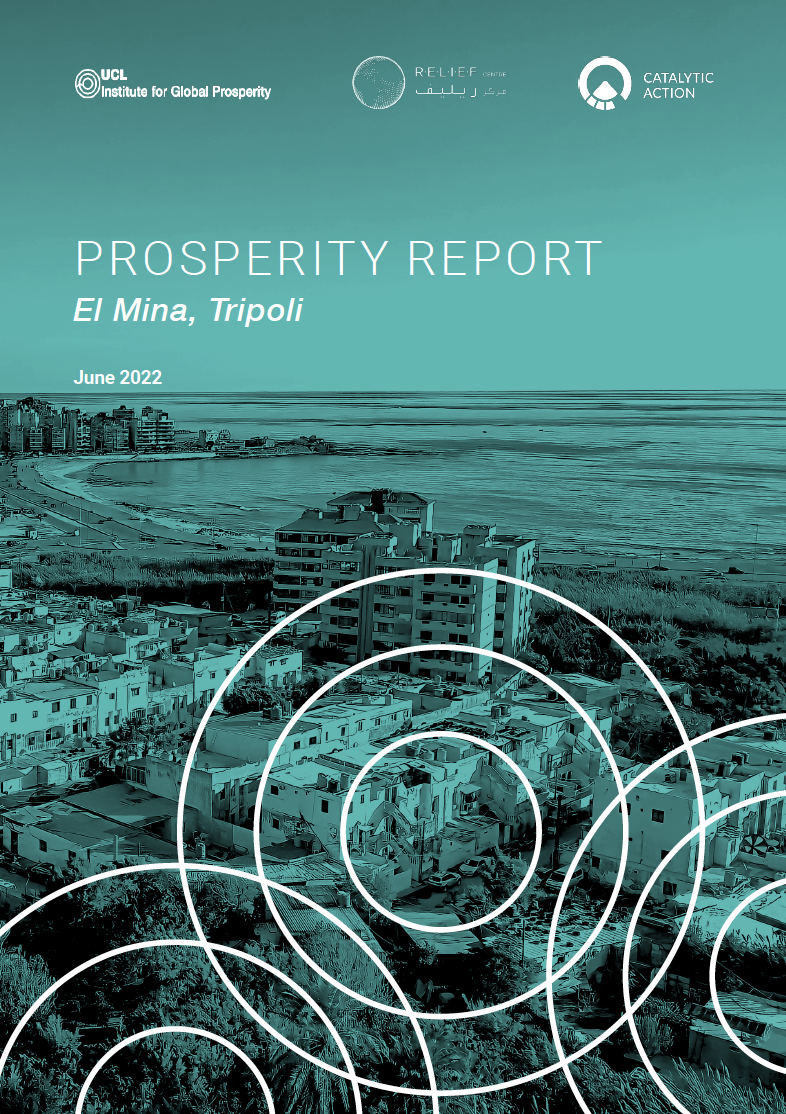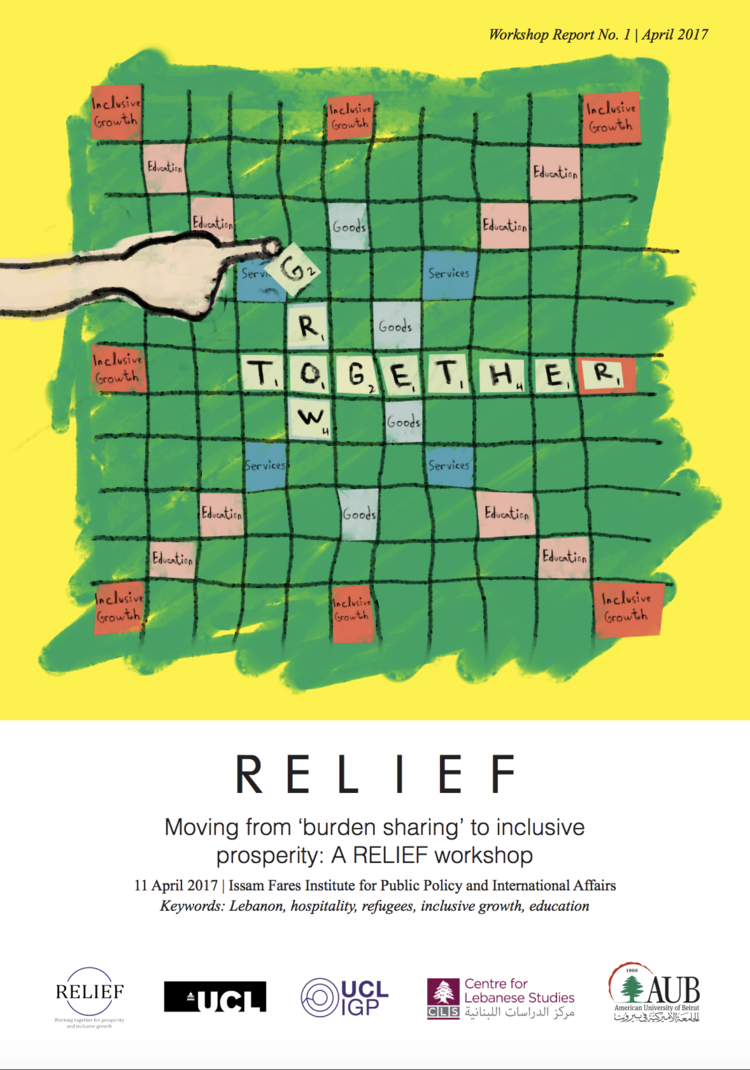Reports
prosperity report el mina, tripoli
The Prosperity Report - El Mina, Tripoli is the third major report led by the Institute for Global Prosperity, presenting key findings on prosperity in urban research sites across Lebanon. The report is about prosperity in two significant ways: in terms of content and in terms of practice. With regard to content, the report’s chapters and the findings they present are organised in accordance with the IGP’s five-domain prosperity model. This is a model that is intended to represent a holistic and context-specific vision of the things that make up good quality of life for people, places, and environments in an inclusive and sustainable fashion. In terms of practice, the report is only one milestone in a much bigger programme of collaborative research and action over many years.
HamrA Neighbourhood Profile
The RELIEF Centre and UN-Habitat Neighbourhood Profile of Hamra, Beirut offers original spatialized data and analysis, generated within an area-based framework, and synthesized to respond to the evidence-based needs of the community, sector specialists, and multisector practitioners. The profile covers multiple sectors and issues, including context; governance; population; safety and security; health; education; child protection; youth; local economy and livelihoods; buildings; water, sanitation and hygiene (WaSH); electricity; and access and open spaces.
What are the challenges of a world where large-scale displacement has become the 'new normal'? How are local communities impacted by the rapid influx of people? And how can the design of infrastructure address the resulting vulnerabilities of residents both within refugee and host populations?
The research team formed of RELIEF, UCL staff, the charity CatalyticAction and citizen scientists representing the different communities of Bar Elias have investigated these and other questions through the lens of a "spatial intervention" in Bar Elias, a town in Lebanon's Beqaa valley, which has recently experienced a rapid influx of Syrian refugees that has doubled its population.
Why Democratic Infrastructure Supports Innovative Energy Projects in Lebanon
In September 2019, the RELIEF Centre and the Institute for Global Prosperity partnered with Chatham House for the second in a series of workshops on Transitions to Renewable Energy and Sustainable Prosperity in Lebanon. In Beirut energy entrepreneurs, policy makers and donors gathered to discuss the future of energy in Lebanon
Transitions to Renewable Energy and Sustainable Prosperity in Lebanon: A People-Centred Approach to Equitable Energy Supply
In January 2019, the RELIEF Centre and the Institute for Global Prosperity partnered with Chatham House for the workshop Transitions to Renewable Energy and Sustainable Prosperity in Lebanon. The workshop brought together Lebanese energy entrepreneurs, policy makers and donors to discuss the future of energy in Lebanon.
The Vital City: Time and space in the unpacking of displacements, crisis and city futures in Lebanon
In January 2018, UCL's Institute for Global Prosperity in collaboration with the Issam Fares Institute for Public Policy and International Affairs at the American University of Beirut (AUB) hosted a two-day workshop in Beirut. The workshop was organised by RELIEF Research Strand 1.
Using a blended learning approach in teacher professional development and community research training
In August 2017, members of the RELIEF 'Future Education' research theme co-hosted a workshop, which aimed to reveal future directions in supporting teaching and research activities of people living in Lebanon; in particular exploring the usefulness of MOOcs (Massive Open Online Courses) and blended learning.
Moving from 'burden sharing' to inclusive prosperity: A RELIEF workshop
In April 2017, the UCL Institute for Global Prosperity and the Issam Fares Institute for Public Policy and International Affairs at the American University of Beirut hosted a one-day workshop on the use of the team 'burden sharing' to refer to the demand on resources placed on Lebanon since the arrival of over 1.5 million refugees from Syria since the beginning of the Syrian civil war in 2011.









